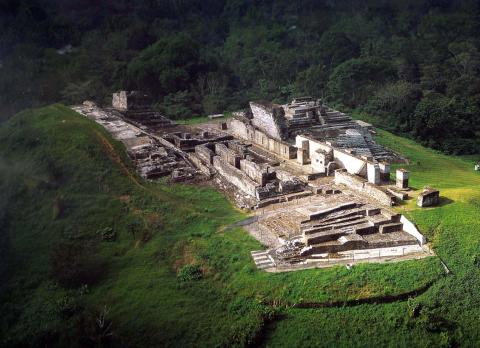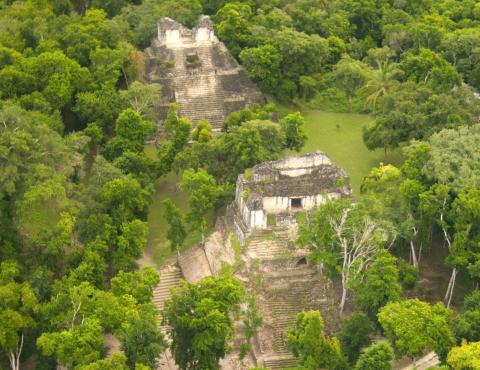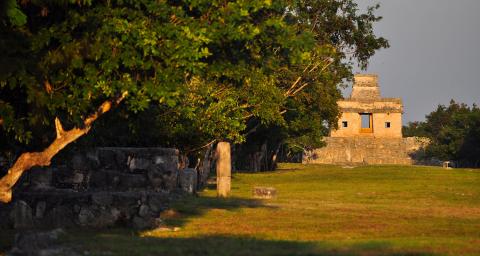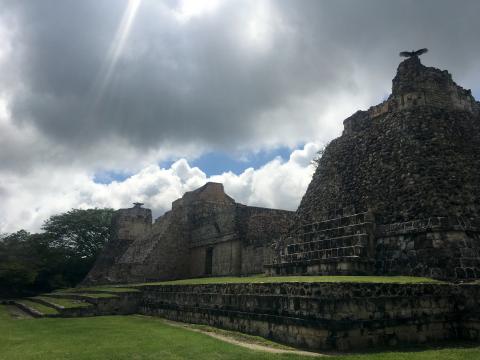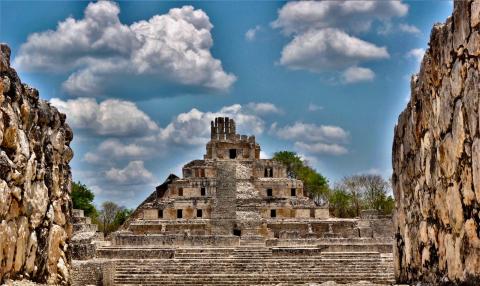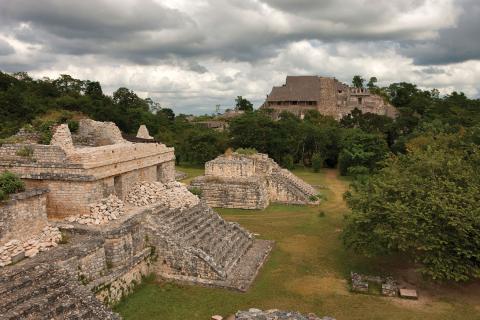
View PDFMostrando 37 - 48 de 134
Región cultural Maya
Comalcalco
This port city was the most western settlement of the Mayan culture and was occupied for a little over 1000 years. Its earthen architecture is distinguished by its brick cladding and mortar using lime from oyster shells.
Comalcalco
This port city was the most western settlement of the Mayan culture and was occupied for a little over 1000 years. Its earthen architecture is distinguished by its brick cladding and mortar using lime from oyster shells.
Dzibanché
The site is surprisingly extensive at more than 15 square miles. The beauty of its enormous constructions and the natural surroundings of the site add interest to the four groups that make up this complex: Dzibanche or the Main Group, the Central Complex or Lamay Group, Tutil and Kinichna.
Dzibanché
The site is surprisingly extensive at more than 15 square miles. The beauty of its enormous constructions and the natural surroundings of the site add interest to the four groups that make up this complex: Dzibanche or the Main Group, the Central Complex or Lamay Group, Tutil and Kinichna.
Dzibilchaltún
The Temple of the Seven Dolls attracts hundreds of visitors at the spring and fall equinoxes, when the sun shines through the building and illuminates the doorway. There are numerous admirable stelae, beautifully carved, and an open cenote (underground pool) with crystal clear waters.
Dzibilchaltún
The Temple of the Seven Dolls attracts hundreds of visitors at the spring and fall equinoxes, when the sun shines through the building and illuminates the doorway. There are numerous admirable stelae, beautifully carved, and an open cenote (underground pool) with crystal clear waters.
Dzibilnocac
The legacy of the past grandeur of this site is an expansive plaza and splendid buildings, some decorated with carved masks. Remains of paintings have also been found, showing hieroglyphs and gods of the Maya pantheon.
Dzibilnocac
The legacy of the past grandeur of this site is an expansive plaza and splendid buildings, some decorated with carved masks. Remains of paintings have also been found, showing hieroglyphs and gods of the Maya pantheon.
Edzná
A site with magnificent architectural complexes, such as the “Great Acropolis” and impressive constructions, above all the “Building of the Five Floors." Edzná’s inhabitants developed a complex water management system to secure a year-round supply, and their city became a powerful regional…
Edzná
A site with magnificent architectural complexes, such as the “Great Acropolis” and impressive constructions, above all the “Building of the Five Floors." Edzná’s inhabitants developed a complex water management system to secure a year-round supply, and their city became a powerful regional…
Ek' Balam
Ramparts, murals, steles, plazas and sumptuous palaces await the visitor, but the greatest surprise is the richness of the architecture and decoration of its buildings, like the Acropolis, whose entrance looks like the mouth of a monster with enormous fangs.
Ek' Balam
Ramparts, murals, steles, plazas and sumptuous palaces await the visitor, but the greatest surprise is the richness of the architecture and decoration of its buildings, like the Acropolis, whose entrance looks like the mouth of a monster with enormous fangs.

